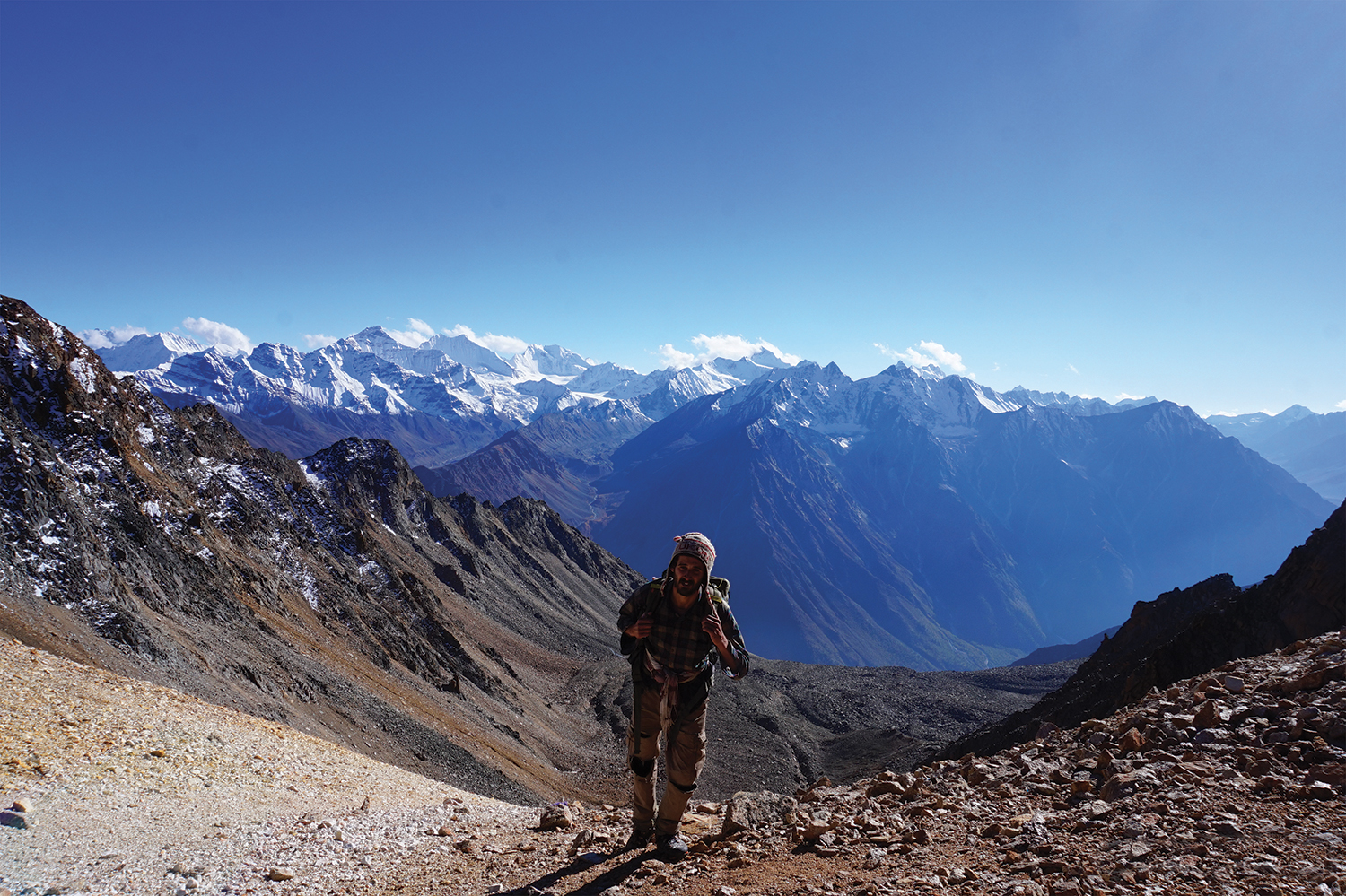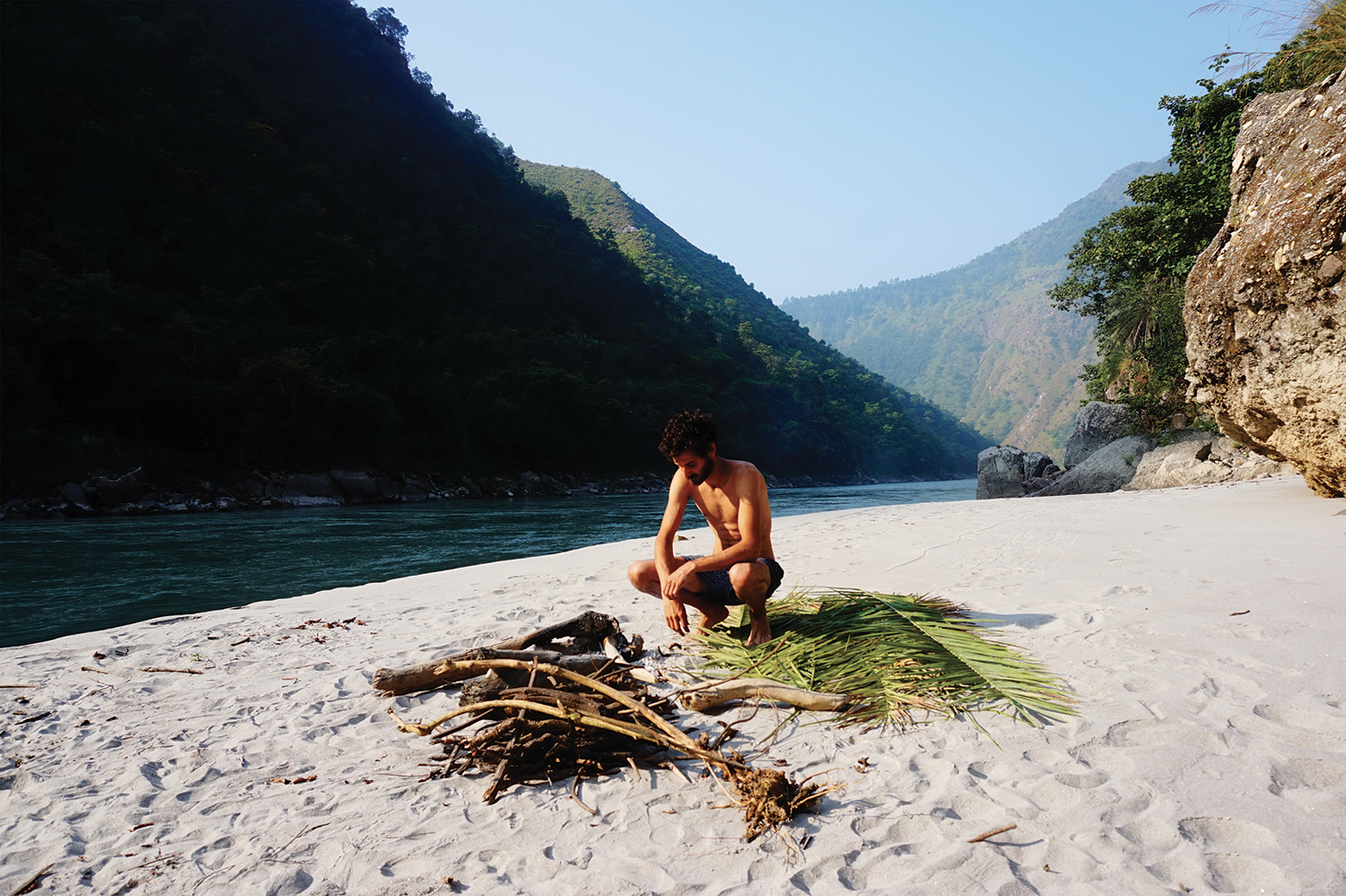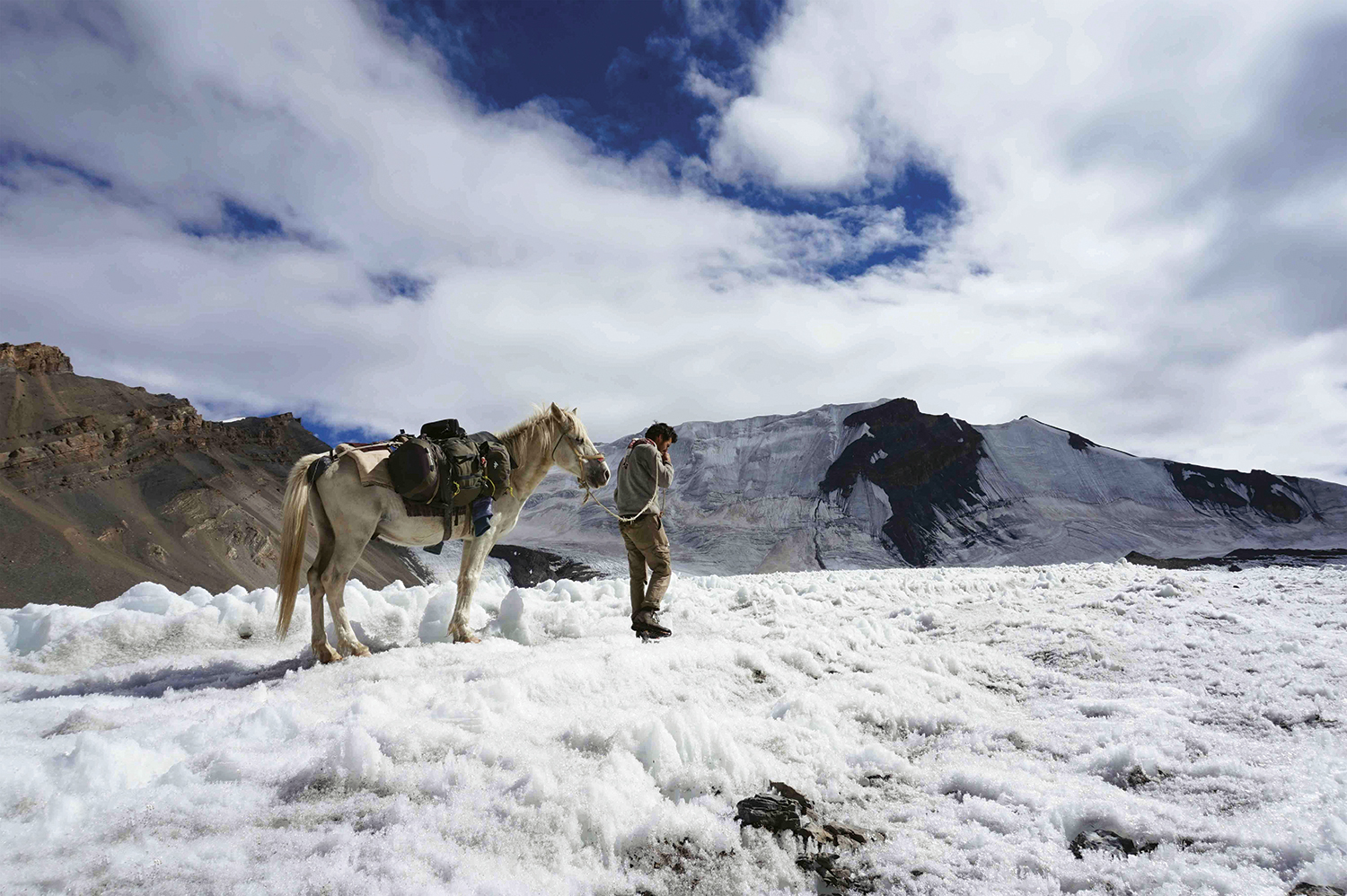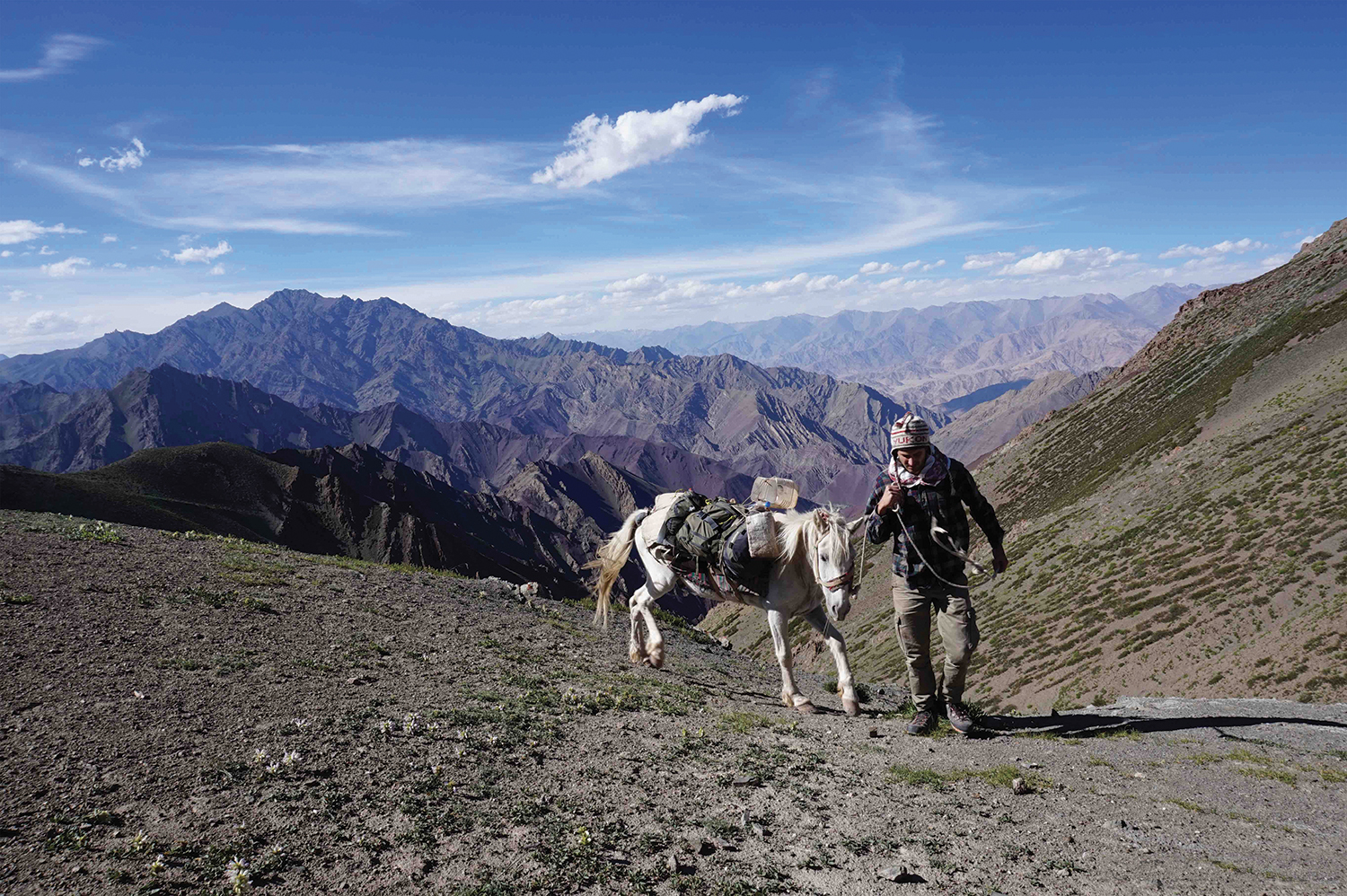By Silvia Galliani

Eliott Schonfeld interview, the man who crossed the Himalaya

A backpack, a tent, a sleeping bag, some warm clothes, a compass and a few maps, a satellite phone, a knife, very few dishes, some books, a notebook and a pencil, a camera. These are the fundamental ingredients of the 24 year old French Eliott Schonfeld to escape from modern society and embrace the wild, solitary and uncontaminated nature.
After Mongolia, Canada, Alaska, the young explorer who wanted to “get out of modernity and become independent”, takes us with him through the Himalayas from west to east, through the broad valleys of Ladakh and along sterile passages and glaciers up to Nepal. He wanted to live in contact with nature and he succeeded. He shows how in his most recent documentary “Le Minimaliste: a Himalayan Adventure” which will be screened during the European Outdoor Film Tour 2019/20.
We have reached Eliott in the middle of the Amazon, immersed in what will be his next adventure, to ask him what it means to experience nature in a minimalist way and understand how little is enough.


Let’s start with Himalaya, where did you get the idea for this adventure?
It came to my mind a few years ago. I decided I wanted to become an explorer when I was 21 and I started to get interested in where I could venture, I searched the maps for the most remote places on the planet, Mongolia, Alaska, Himalaya, and planned my future trips. The Himalayas was my first plan but then I managed to explore it only after other 3 trips to equally remote places. I once saw this film, quite stupid I would say, called The Secret Life of Walter Mitty, where the protagonist, Ben Stiller, ends up in a prison in the Himalayas. What impressed me, however, were the places shown in the movie, landscapes so remote and uncontaminated that they immediately inspired me.
So you’ve decided to become an explorer at 21, it’s not a very common decision. What did your parents say?
It was not a decision that came right out of the blue. I had been traveling for two years because I left home just after finishing school. I graduated at 18 and decided to take a gap year and travel a few months to figure out what to do with my future. I then left for Australia for 5 months and accidentally lost myself for a week in the tropical forest and there I really understood what it means to be part of nature. Later I went to Canada, in Quebec, to work and once back in France I decided that I would return to my everyday life, attending philosophy at the university. It only lasted a week, I quit school and decided I would be a full-time explorer. My parents were a bit upset back then but I think they are happy for me now, they know it’s what I want to do in my future. Obviously they are sometimes frightened, especially before every departures, but they trust me and they know I will be careful.

You travel most of the time, one of the reasons may be because you sometimes feel so overwhelmed by men and civilization that you need to find moments for yourself, alone?
In reality the reason why I chose to stay in contact with nature has nothing to do with a hypothetical escape from civilization. It is simply the need to reach another world, lose myself in nature and then return to my everyday life. At the beginning I certainly liked discovering new worlds, getting to know nomadic peoples so different from everything I was used to. All this has changed the way I see the world, it has made me discover what our planet can offer and has developed in me the desire to fight to preserve it.
After having lived so long in the wild, has something changed in your life once back in Paris?
After these adventures I realized civilization is everywhere around us, even the nomadic populations have been affected by it in some way, there is no way to escape it.
When I lived in Paris, before starting my explorations, I bought food and products when I needed. After these experiences, instead, I realized how important it is to be aware of what we buy, eat, consume in general. Obviously this will not stop what is happening to our planet because everything is happening much faster than the small changes we can make in our everyday lives can affect us. But it’s a first step.
You’ve traveled for a long time, have you ever thought of settling in some specific place or is it against your idea of travel?
At the moment I am in the middle of the Amazon and when I’ll return to France I will leave Paris to move to the Alps. One of my favorite places in the world, however, remains Alaska and one of my dreams would be to live in some remote place in Alaska or Canada. I would like to build a small cottage where I can live for some periods of the year when I’m not traveling.
When you go on a new adventure, are you worried or scared at the beginning or is it something you get used to?
I usually don’t care about that much, also because in those remote places or in the mountains time flows in a different way. For days sometimes nothing happens and the more time passes by the more you begin to appreciate the solitude and the flow of those days who look all the same without great events. Day after day you learn the rules of the environment that surrounds you and it becomes easier and easier to live there because you have passed the part concerning the mere survival and life there suddenly becomes your routine. You begin to feel part of that place which at the beginning seemed so hostile, so scary. I would not call it freedom because you are not free, rather you have to abide by the rules of the wild place that is hosting you to be able to survive. Even today it is a feeling that fascinates me and I can’t get used to it.
Remote and uncontaminated places helps to reconnect with nature, do you think it is an experience that we should all do at least once in a lifetime?
To be immersed in nature makes you realize how much you are actually a part of it, humanization and civilization have made us forget it but there, in those wild places, you understand what it really means. You are no longer the one in control and you let the circumstances of what happens around you decide for you, you just have to get used to it, but in this way you realize that you are only a small part of something bigger. It is a strange feeling, as if you were nothing but at the same time powerful, small compared to what surrounds you but at the same time strong for being a part of the whole.
Do you think there is a contradiction in the refusal to live in the midst of modernity and at the same time tell its dangers and an alternative way to live through an object as technological as a video camera?
I don’t see a real contradiction because, as I said before, by now civilization has reached almost every corner of the planet. I don’t think it’s a problem to use something technological to promote a non-tech lifestyle, it is just one of the many tools available to me to reach those people who, like me, use that kind of technology. The important thing for me is to be able to show that another kind of life is possible, something that puts us in harmony with nature, that shows that living as human beings does not necessarily imply destroying nature, we can live together in harmony with it. There are many other lifestyles and it is important for me to show them.